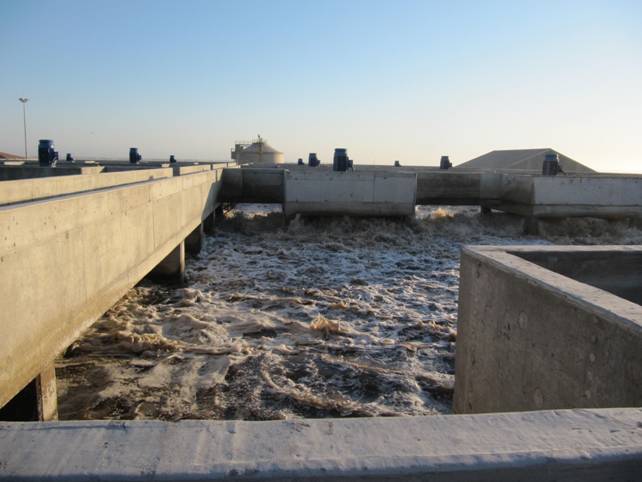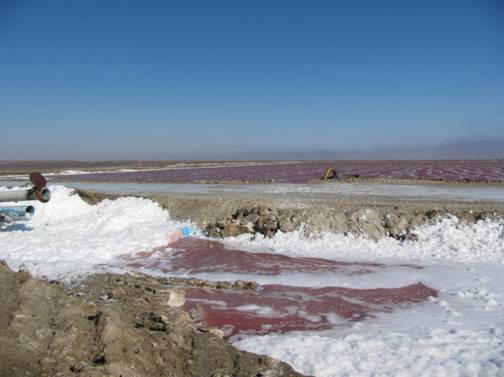Namibia
A number of meetings and discussions took place after the workshop. Decisions were taken to explore some avenues with a view of applying what had been learnt.
Integrated Algal Pond System for wastewater treatment

The Swakopmund Town Engineer, Mr. Dewald Duvenhage, took a principal decision to consider the waste water treatment using algae for the soon to be decommissioned old sewerage works. He has subsequently asked me for the DVD footage so that he can approach the CEO with a proposal. He might well be in touch with Professor Keith Cowan in the near future. The municipality’s goal is to reduce their cost of electricity.
After the workshop, Professor Ami Ben-Amotz met with Mr. Klein of the Swakopmund Salt Works to discuss a common passion. They discussed among other things the merits of Dunaliella production at the salt pans. A further point on Dunaliella is made under the following section.
GlycAL Namibia

As a representative of the company, GlycAL Namibia, the workshop brought the opportunities to work with microalgae into a clearer perspective.
Dr. Verdelho’s talk provided the scenarios that would make a commercialisation of algal cultivation a reality in Namibia. Though there are many aspects of this enterprise that need careful thought and planning it remains a potential option for Namibia. The discussions with Professor Ami Ben Amotz give us reason to believe that joint ventures between the international scientific community and GlycAL Namibia could place Namibia in a position to develop the potential of our science and technology sector. Research and development will continue in its current form, thanks to the Aquaculture Directorate of the Ministry of Fisheries and Marine Resources and the work of volunteer, Mr. Gonçalo Murta. Mr. Murta presented the case study on Dunaliella. We hope to start a pilot demonstration plant in the near future, that will provide the opportunity for more investigations and hopefully provide the motivation to scale up to the commercial production of microalgae.